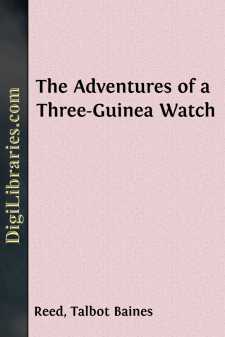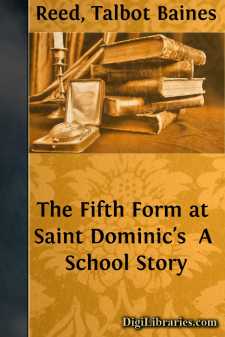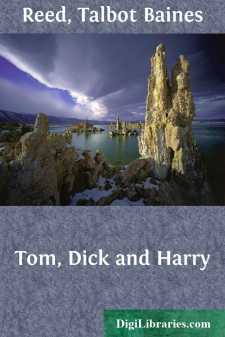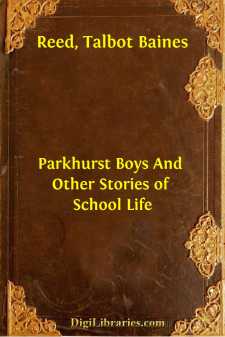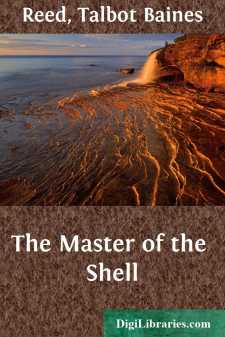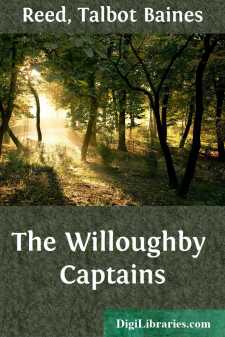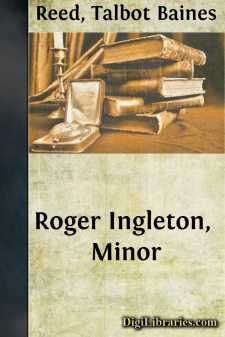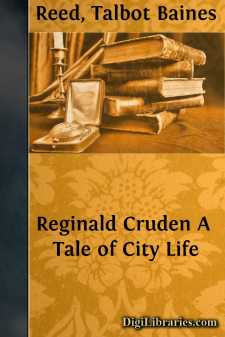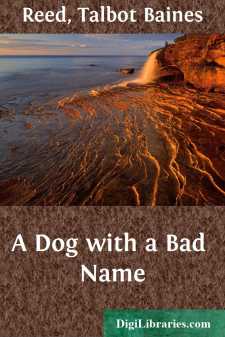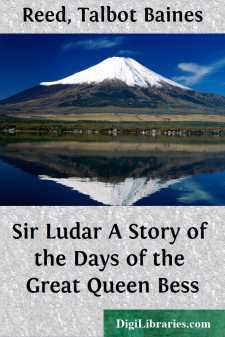Categories
- Antiques & Collectibles 13
- Architecture 36
- Art 48
- Bibles 22
- Biography & Autobiography 813
- Body, Mind & Spirit 142
- Business & Economics 28
- Children's Books 17
- Children's Fiction 14
- Computers 4
- Cooking 94
- Crafts & Hobbies 4
- Drama 346
- Education 46
- Family & Relationships 57
- Fiction 11829
- Games 19
- Gardening 17
- Health & Fitness 34
- History 1377
- House & Home 1
- Humor 147
- Juvenile Fiction 1873
- Juvenile Nonfiction 202
- Language Arts & Disciplines 88
- Law 16
- Literary Collections 686
- Literary Criticism 179
- Mathematics 13
- Medical 41
- Music 40
- Nature 179
- Non-Classifiable 1768
- Performing Arts 7
- Periodicals 1453
- Philosophy 64
- Photography 2
- Poetry 896
- Political Science 203
- Psychology 42
- Reference 154
- Religion 513
- Science 126
- Self-Help 84
- Social Science 81
- Sports & Recreation 34
- Study Aids 3
- Technology & Engineering 59
- Transportation 23
- Travel 463
- True Crime 29
Talbot Baines Reed
Talbot Baines Reed was an English writer and printer born on April 3, 1852, and known for his boys' fiction and work on typography. He authored popular school stories like "The Fifth Form at St. Dominic's" and contributed to the genre's development in the late 19th century. Reed also wrote the significant "A History of the Old English Letter Foundries," which remains a crucial reference in the field of printing history.
Author's Books:
Sort by:
Chapter One. My infancy and education—How I was sold and who bought me. “Then you can guarantee it to be a good one to go?” “You couldn’t have a better, sir.” “And it will stand a little roughish wear, you think?” “I’m sure of it, sir; it’s an uncommon strong watch.” “Then I’ll take it.” These few sentences determined my destiny, and from that moment my career may be said...
more...
Preface. The Fifth Form at Saint Dominic’s is a story of public-school life, and was written for the Boy’s Own Paper, in the Fourth Volume of which it appeared. The numbers containing it are now either entirely out of print or difficult to obtain; and many and urgent have been the requests—from boys themselves, as well as from parents, head masters, and others—for its re-issue as a book. Of the...
more...
Who shot the Dog? A shot! a yell! silence! Such, as soon as I could collect myself sufficiently to form an idea at all, were my midnight sensations as I sat up in my bed, with my chin on my knees, my hair on end, my body bedewed with cold perspiration, and my limbs trembling from the tips of my fingers to the points of my toes. I had been peacefully dreaming—something about an automatic machine into...
more...
My First Football Match. It was a proud moment in my existence when Wright, captain of our football club, came up to me in school one Friday and said, “Adams, your name is down to play in the match against Craven to-morrow.” I could have knighted him on the spot. To be one of the picked “fifteen,” whose glory it was to fight the battles of their school in the Great Close, had been the leading...
more...
Twice Accepted. The reader is requested kindly to glance through the following batch of letters, which, oddly enough, are all dated September 9th, 18—: Number 1.—William Grover, M.A., Grandcourt School, to Mark Railsford, M.A., Lucerne. “Grandcourt, September 9th. “Dear Railsford,—I suppose this will catch you at Lucerne, on your way back to England. I was sorry to hear you had been seedy...
more...
The last of the old Captain. Something unusual is happening at Willoughby. The Union Jack floats proudly over the old ivy-covered tower of the school, the schoolrooms are deserted, there is a band playing somewhere, a double row of carriages is drawn up round the large meadow (familiarly called “The Big”), old Mrs Gallop, the orange and sherbert woman, is almost beside herself with business flurry,...
more...
A Summons. The snow lay thick round Maxfield Manor. Though it had been falling scarcely an hour, it had already transfigured the dull old place from a gloomy pile of black and grey into a gleaming vision of white. It lodged in deep piles in the angles of the rugged gables, and swirled up in heavy drifts against the hall-door. It sat heavily on the broad ivy-leaves over the porch, and blotted out lawn,...
more...
An interrupted Bathe. It was a desperately hot day. There had been no day like it all the summer. Indeed, Squires, the head gardener at Garden Vale, positively asserted that there had been none like it since he had been employed on the place, which was fourteen years last March. Squires, by the way, never lost an opportunity of reminding himself and the world generally of the length of his services to...
more...
Dry-Rot. Bolsover College was in a bad temper. It often was; for as a rule it had little else to do; and what it had, was usually a less congenial occupation. Bolsover, in fact, was a school which sadly needed two trifling reforms before it could be expected to do much good in the world. One was, that all its masters should be dismissed; the other was, that all its boys should be expelled. When these...
more...
How I saw my Queen. Every story, whether wise or foolish, grave or gay, must needs have a beginning. How it comes to pass that my story begins on a certain day in May, in the year of our Lord 1585, I can never, although I am far on in life now, properly explain. For that was not the day on which I was born. That adventure had befallen me eighteen years before, at the parson’s little house in Felton...
more...


